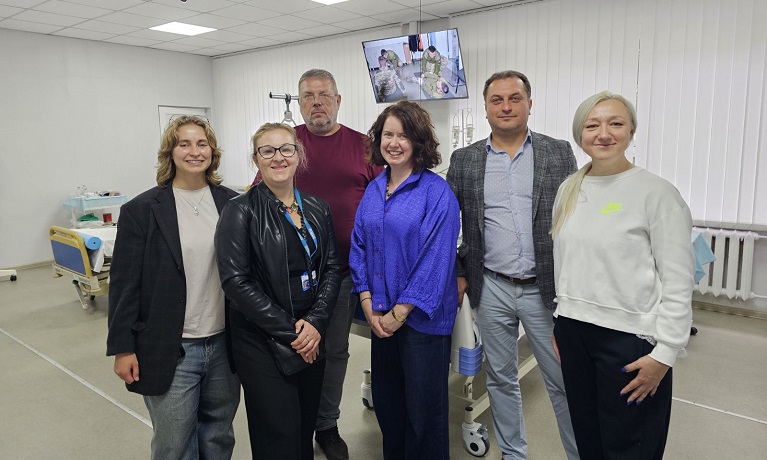Search

Nov
Former Premier League referee Graham Scott reveals...
A former Premier League referee says officials are missing out on important “building blocks” as he admits “poor officiating can ruin matches but the best can enhance...

Nov
Coventry University evaluation confirms long-term...
A Coventry University evaluation of a bespoke initiative to transform NHS healthcare professionals’ knowledge and use of research has confirmed its benefits.

Nov
Battery technology of tomorrow moving ever closer...
Researchers at Coventry University have been recognised for their work in creating and inspiring the batteries of the future which will power electric vehicles and much...

Nov
Work begins on city centre Community Diagnostic...
Construction has begun on a new health hub in Coventry city centre, marking a major milestone that will see Coventry University become the first higher education...

Nov
Coventry University to examine how sports can recruit...
It’s often referred to as the most difficult job in sport but a study involving Coventry University is to examine the benefits of officiating to help sports...

Nov
Preparing for an exam? Coventry University study...
A new study by researchers at Coventry University has found a high intensity gym workout appears to increase your ability to focus, remember and process information in...

Oct
Coventry University research finds lack of basic...
Children who fail to master basic physical skills such as running, jumping and hopping at a young age are at higher risk of severe knee injuries as they get older.

Oct
Digital culture takes centre stage at Coventry...
Midlands residents are invited to scan their treasures and help preserve cultural heritage at a one-off digital event led by Coventry University researchers.

Oct
Coventry University study into how pedestrians react...
As self-driving cars edge closer to becoming a reality on UK roads, researchers at Coventry University say understanding how pedestrians interact with automated vehicles...

Oct
Coventry University researcher invited as...
The evolving needs of Ukraine’s healthcare system are being helped by the expertise of a researcher from Coventry University.

Oct
Coventry University calls for action to address AI...
Coventry University has published a new report warning that the UK automotive sector faces a critical shortage of artificial intelligence (AI) and digital skills, which...

Oct
Coventry University launches new initiatives to...
Coventry University has unveiled three major initiatives designed to make Artificial Intelligence (AI) accessible, responsible, and transformative by connecting...




